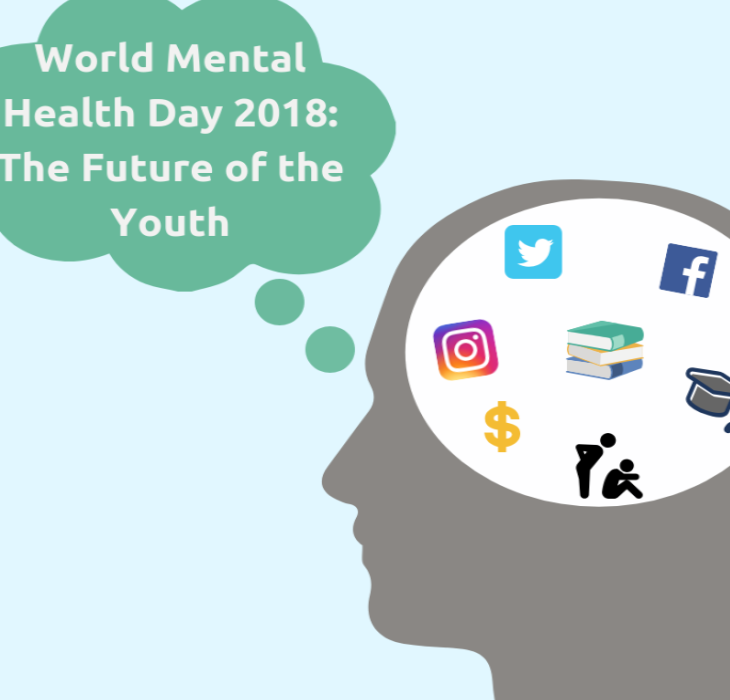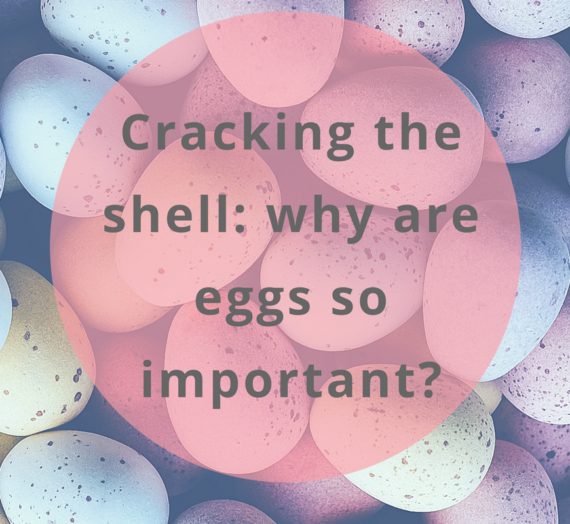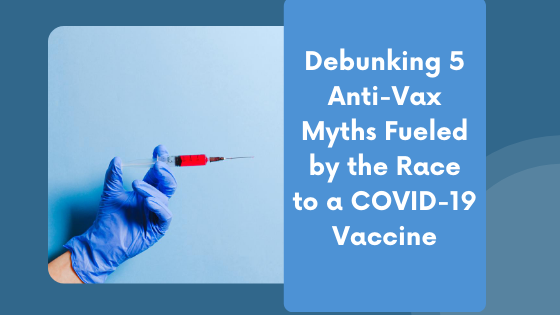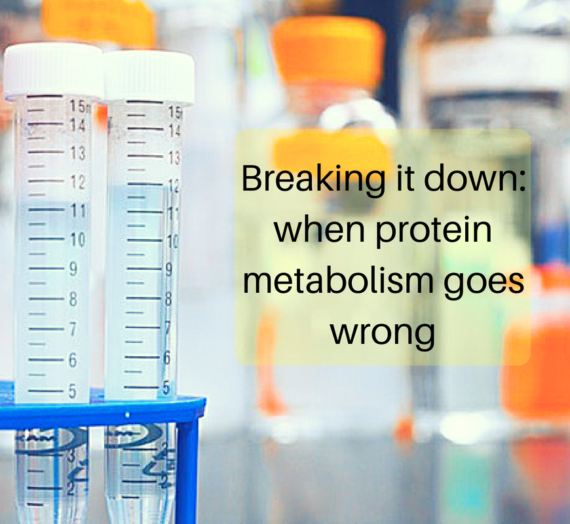Roisin Conneely and Arzo Iqbal

Wednesday 10th October is World Mental Health Day, an international awareness day set up by the World Health Organisation (WHO) aiming to increase understanding of mental health issues, as well as “mobilising efforts in support of mental health”. This year’s theme is “Young People and Mental Health in a Changing World”, so we thought we’d take a look at some of the issues affecting young people and their mental health, from social media to pressures from school, and what the future holds for them.
The neuroscience of social media
Humans have evolved to be social for survival, however, the social threats our ancestors faced 13 million years ago is very different to the social “threats” we face today; banishment from your tribe is very different to less likes on Instagram, but interestingly activates the same region of the brain, which is worrying given the massive role of social media in the lives of young people. Neuroimaging studies have identified three distinct neural networks of the brain that are active when using social media: the ‘mentalizing network’, ‘reward network’ and ‘self-referential cognition network’.

The mentalizing network consists of the dorsomedial prefrontal cortext (DMPFC), temporoparietal junction (TPJ), anterior temporal (ATL), inferior frontal gyrus (IFG), and the posterior cingulate cortex/precuneus (PCC). ‘Mentalizing’ is a form of imaginative mental activity enabling us to perceive and interpret human behaviour in terms of intentional mental states (e.g. needs, desires, feelings, beliefs, goals etc.) i.e. understanding our own and others’ thoughts and feelings. The DMPFC is the part of the brain that engages in social interaction and create empathy and helps us make judgements about others. Thus, any activity that engages the DMPFC is perceived as important. Social media use engages the DMPFC which explains why we are attached to social media. Furthermore, the adolescent brain is still developing and given the plasticity of the human brain, passive social media use engages less of the brain and could result in loss of creativity.
The reward network consists of the ventromedial prefrontal cortex (VMPFC), ventral striatum (VS) and ventral tegmental area (VTA). Teenagers have increased activity in the nucleus accumbens (part of the VS) of the brain. This area of the brain is associated with reward and triggers release of dopamine i.e. more Facebook likes results in increased dopamine levels thus triggering the reward circuitry. Social media provides a constant supply of social rewards in terms of peer recognition and approval in the form of likes and comments due to stimulation of the reward network. Moreover, social media use results in increased levels of oxytocin (the “love” chemical) thus, making it harder to resist social media use.
The self-referential cognition network consists of the medial prefrontal cortex (MFPC) and PCC. Self-referential processing is a cognitive process involved in relating information from the external world to the self. It is very important for self-appraisal and social competiveness. However, it can be very dangerous when using social media; constantly relating what people on facebook or Instagram are doing to oneself can have a negative impact on one’s mental health. Fear of missing out (FOMO) is something we all experience, but it can be very dangerous for our mental well-being.
Our brains are wired to crave social rewards and social media provides a perfect means to gain these rewards. The very neuroscience of social media use demonstrates not only how social media is addictive, but also the cognitive mechanisms underlying the negative impact of social media on our mental health.
Diet and lifestyle
Modern life has led us to become sedentary beings, taking less exercise and becoming accustomed to quick and easy fast food rather than fresh fruit and vegetables. Whilst the physical health risks of such a lifestyle have been well documented, could it also be affecting our mental health?
 A study carried out in Spain in 2012 examined the fast food consumption of 9000 people and their risk of depression, revealing that those who ate the most fast food were 37% more likely to develop depression over a six year period. Another study, carried out in New York, found that people under the age of 30 who ate fast food more than three times per week scored higher on mental distress indicator tests . With many young people relying on fast food outlets as their only source of a hot meal, these results should be worrying.
A study carried out in Spain in 2012 examined the fast food consumption of 9000 people and their risk of depression, revealing that those who ate the most fast food were 37% more likely to develop depression over a six year period. Another study, carried out in New York, found that people under the age of 30 who ate fast food more than three times per week scored higher on mental distress indicator tests . With many young people relying on fast food outlets as their only source of a hot meal, these results should be worrying.
In 2016 it was revealed that British children are amongst the least physically active in the world, with factors such as increasing reliance on video games rather than outdoor play for entertainment, being blamed. It is well known that exercise boosts our mental health by producing endorphins; “feel-good hormones”, which act upon opiate receptors in the brain to reduce pain and increase a feeling of well-being. Hence, encouraging the youth to exercise more is a practical way to help boost their mental health and reduce their risk of issues such as depression and anxiety.
Mental health in education
An alarming poll carried out by the National Education Union revealed in April 2018 that 56% of school staff had observed self-harm or thoughts of self-harm in their students. Some other horrifying statistics from the poll are:
- 27% said that mental health problems have led to suicide or suicide attempts.
- When asked the contributory factors in these mental health issues, 81% claimed that exams were to blame, whilst 61% also noted the influence of increasing school pressure to succeed.

These figures reveal the tragic consequences that increasing pressure from school and colleges are having on our youth. Education is supposed to be liberating, fun and rewarding, not anxiety-inducing and the cause of self-harm scars. Of course, hard work is expected and necessary, but should we really be pushing our children to such extents that they feel the only way to escape their problems is suicide?
For more on global suicide rates, read our infographic here.
Recent changes to exam structure in the UK have also been cited as important factors in the trend of worsening mental health in students. The old system contained modules with individual exams and coursework, but now, students have to face end-of-course examinations, meaning fewer chances to “bump up” your grades and leading to an increased sense of pressure from these exams as “make or break”.
What happens to our brains when faced with such exams? Well, in evolutionary terms, tests are perceived by the brain as a threat, and it begins to undergo a threat-response mechanism to tackle it. The brain is split into ancient, subcortical structures, such as the limbic system, which is sometimes referred to as the more “animal-like” part of the brain, relying on instinct rather than thought, and the more complicated cortical structures, which allow us to reason and think about events and stimuli. Dealing with a threat such as an exam can cause our bodies to go into “fight or flight” mode. You can read more about the body’s physiological response to stress in our previous post here:
Education is supposed to be liberating, fun and rewarding, not anxiety-inducing and the cause of self-harm scars
It’s clear that exams and schoolwork are putting increasing pressure on young people, especially given the fact that the number of children referred to mental health services has increased by over 25% in England over the last five years. The Education Policy Institute states, however, that 55,800 children and young people have been denied access to mental health care due to cuts to services, as their cases weren’t “serious enough” to justify intervention. For those that do get seen, an average waiting time of 34 days is expected just for an initial assessment, with some children waiting up to 188 days before commencing treatment. With the clear trend in increasing pressure from school and declining mental health, surely prevention is better than a cure, but leaving vulnerable young people without access to support means we might not even be able to provide that, begging the question, what’s next? The suicide rate amongst students in the UK has risen by 56% over the last 10 years, with teenage suicides in London alone increasing at over four times the national rate. If we deny mental health care to those who need it, the consequences can be horrifying and tragic, but we cannot be surprised. We are creating a catastrophe for ourselves and the young generation, and figures like these can only rise if we continue to do nothing about it.
Clearly, this is not an exhaustive list of all the challenges facing young people and their mental health across the world, factors such as bullying, abuse, homophobia, poverty, growing up in warzones and lots more are also at play. We’ve only scratched the surface with this post, but we hope we can encourage an open conversation in order to create a society in which children and teenages are not afraid to be honest about their mental wellbeing.
Here is a list of resources available if you need any mental health support:
- https://youngminds.org.uk/
- https://www.mentalhealth.org.uk/a-to-z/c/children-and-young-people
- http://healthyyoungmindspennine.nhs.uk/resource-centre/external-links/nhs-choices-youth-mental-health/
- https://www.rethink.org/living-with-mental-illness/young-people
Sources:
- https://pixnio.com/people/male-men/man-depression-dark
- https://www.huffingtonpost.com/entry/biological-psychological-reasons-for-social-media_us_58c279a7e4b0c3276fb78388
- https://www.cambridge.org/core/journals/public-health-nutrition/article/fastfood-and-commercial-baked-goods-consumption-and-the-risk-of-depression/CF02E46F44CFC28D5F4D151FAD39EC77
- https://www.tandfonline.com/doi/full/10.1080/1028415X.2017.1411875
- https://www.telegraph.co.uk/news/2016/11/20/british-children-among-the-least-active-in-the-world-with-exerci/?utm_content=buffer10add&utm_medium=social&utm_source=twitter.com&utm_campaign=buffer
- https://www.independent.co.uk/news/education/education-news/school-pupil-mental-health-exams-school-pressure-national-education-union-neu-a8297366.html




